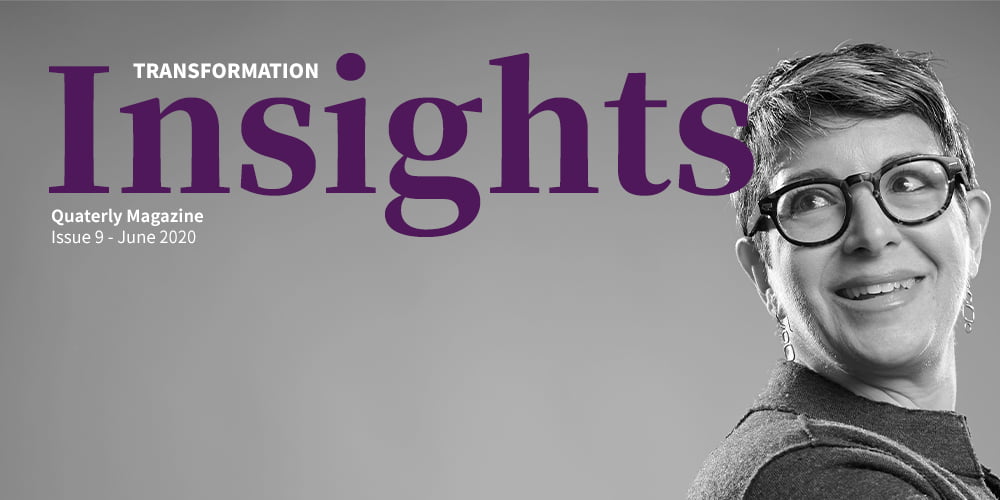Reskilling and Upskilling the Workforce of the Future
Let us help you turn
your workforce into a
true force

“In the white-collar world, we’ve seen the rapid rise of specialized and technical skills that require almost constant upskilling and reskilling to keep pace with innovation. That means a lot more organizations are coming to the sudden realization that they need to change their approach to learning.“
Kevin Gagan
It was a surprising – but not entirely unprecedented – reversal of fortune.
Jake Schwartz, the CEO of General Assembly, a leading provider of workplace learning solutions, had been pitching a reskilling program to the CHRO of a Fortune 500 company that employed thousands of people in markets all over the globe.
Schwartz was pushing hard to get the CHRO to see the value of reskilling – training existing employees to fill future talent needs – without much luck. This company was entrenched in a very traditional talent strategy where firing and hiring new people was the order of the day.
Schwartz said he emphasized the benefits of reskilling and upskilling, but the CHRO would have none of it. He noted how reskilling was more cost efficient and how it preserved the employer’s brand while reducing the uncertainty of bringing on new and unproven talent.
At the end of the meeting, the two shook hands, and Schwartz left convinced that General Assembly would not be doing business with this company.
A few hours later, however, Schwartz got an email from the CHRO.
“He told me that after our meeting, he went in and looked at his talent acquisition budget,” Schwartz recalled. “He told me, ‘I had no idea we were spending so much trying to hire new people. And how little we were spending to help our existing people fill our future needs.’”
As has been the case with many other sales calls, this CHRO thought about what he had heard, looked deeper into the numbers, and eventually wanted more information about reskilling. Schwartz said that most organizations need more than one conversation to convince them to transform their talent strategy.
“An increasing number of employers are coming to the same conclusion,” said Schwartz. “In the white-collar world, we’ve seen the rapid rise of specialized and technical skills that require almost constant upskilling and reskilling to keep pace with innovation. That means a lot more organizations are coming to the sudden realization that they need to change their approach to learning.”
That change has seen an increasing number of organizations change their entire mindset about learning.
Schwartz acknowledged that for a very long time, workplace learning was seen more as a perk to drive loyalty and engagement than as a tool of talent development.
An organization might, for example, pay for a leader to get an MBA. That might not have had much of an impact on the talent pipeline, but it did build loyalty to the employer’s brand and possibly helped with the recruitment of other talent.

Some organizations took a more direct approach to learning that involved creating their own educational institutions. Some of the world’s biggest and most iconic companies – GE, General Motors and AT&T for example created corporate campuses that were designed to train new employees and upskill existing ones.
Schwartz said, however, that not every organization has the resources or the number of employees to make that a cost-effective option. There were also concerns about the return on investment that employers were getting for learning expenditures.
As the average tenure of an employee began to go down, so too did the appetite for investing in learning, Schwartz said. “It was really a chicken and egg scenario. As tenure dropped, employers began worrying about investing in someone who might leave them a few months later.”
These macro trends have driven down the average investment being made by employers in their employees, he said. Currently, American employers spend on average less than $1,000 per person on learning and development. Schwartz said that number reflects the general skepticism about the value of workplace learning.
Fortunately, two major trends have disrupted this pessimistic view.
First, many employers have realized that formal education is not necessarily a fix for current talent needs. Vocational and post-secondary education continues to run behind the leading edge of actual talent needs, Schwartz said.
“Over the last 10 years, I think there is a growing awareness that the academic world has failed the business world,” Schwartz said. “Schools are just not producing the employees or talent needed by businesses today.”
The second disruptive change has to do with the assumptions that employers make about workplace learning.
Schwartz insisted that the concerns about tenure and ROI only make sense if you look at learning more as a perk than as a talent management strategy. Once you realize that learning is actually a pathway to meeting future talent needs, then the ROI equation turns on its ear.
As the CHRO at the Fortune 500 company came to realize, Schwartz said, when expenditures on upskilling or reskilling are assessed against recruitment and other talent acquisition costs, the learning equation changes.
This new view of learning has undoubtedly been aided by the global talent shortage. “In the past, it was easy for an employer to figure out when to fire and when to hire,” Schwartz said. “There was always talent out there looking for work. Now, it’s a lot harder to find the exact people you need. This is a problem made worse by the fact that most organizations are in some stage of digital transformation and are all trying to hire the same kind of people. That really shrinks the talent pool.”
Given the global talent shortage, Schwartz said that the truly successful organizations will be those that know how to squeeze all the value out of their existing employees before casting about the general talent market.
“Organizations need to look at the future, maybe two or three years down the road, and try to figure out the kind of people they’re going to need to execute on their business plan. Learning is not a perk, it’s an important tool in your talent development tool belt.”
Source: lhh.com













